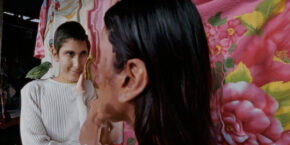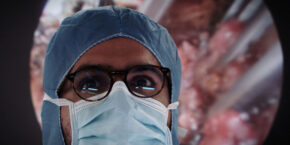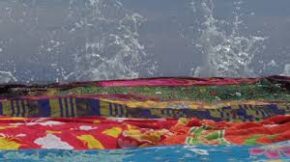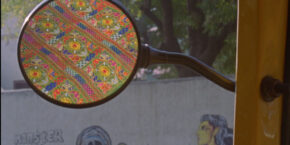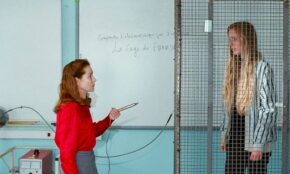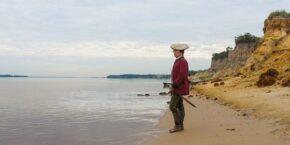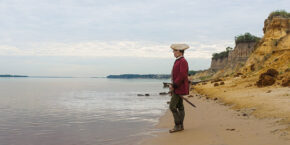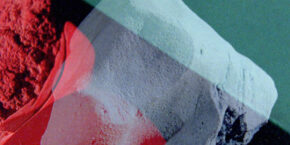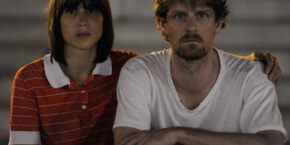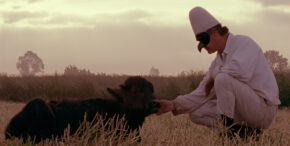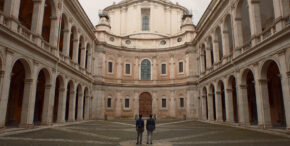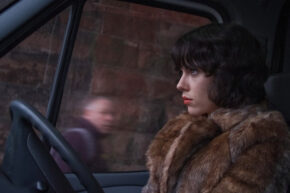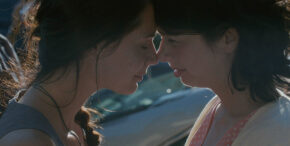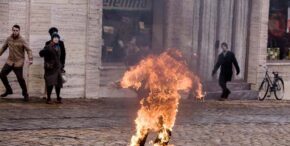Blake Williams
TIFF 2023 | The Human Surge 3 (Eduardo Williams, Argentina/Portugal/Brazil/Netherlands/Taiwan/Hong Kong/Sri Lanka/Peru) — Wavelengths
By Blake Williams | 09/05/2023 | Cinema Scope Online, CS96, From Cinema Scope Magazine, TIFF 2023
Born on the extreme margins of an industry that is still only barely interested in product that isn’t either a sequel, remake, or reboot, Williams’ Surge saga is a franchise befitting the current climate of arthouse filmmaking, wherein conventions of continuity, plot mechanics, and psychological clarity are increasingly being challenged, if not outright dismissed. We have no idea where we’re going, but we seem to be getting there fast.
Read More → TIFF 2022 | De Humani Corporis Fabrica (Véréna Paravel & Lucien Castaing-Taylor, France/Switzerland) — Wavelengths
By Blake Williams | 09/10/2022 | Cinema Scope Online, TIFF 2022
By Blake Williams Published in Cinema Scope #91 (Summer 2022) “The first step in cinematographic thought seems to me to be the utilisation of existing objects and forms which can be made to mean everything, because nature is profoundly, infinitely versatile.”—Antonin Artaud, “Cinema and Abstraction” It’s been ten years since Sensory Ethnography Lab cine-anthropologists Lucien…
Read More → Gross Anatomy: Véréna Paravel & Lucien Castaing-Taylor on “De Humani Corporis Fabrica”
By Blake Williams | 06/21/2022 | CS91, From Cinema Scope Magazine, Interviews
...watching this movie frequently hurts like hell, and not just physically. With a camera that furiously navigates its subjects’ myriad intestinal tracts, cranial cavities, and other, mercifully unidentifiable visceral miscellany, De Humani Corporis Fabrica is very probably the most aesthetically interoceptive movie ever made for theatrical exhibition.
Read More → TIFF 2021 | The Girl and the Spider (Ramon & Silvan Zürcher, Switzerland)
By Blake Williams | 09/09/2021 | Cinema Scope Online, TIFF 2021, TIFF Coverage & Reviews
By Blake Williams Published in Cinema Scope #87 (Summer 2021) I will never know how you see red, and you will never know how I see it; but this separation of consciousnesses is recognized only after a failure of communication, and our first movement is to believe in an undivided being between us.—Maurice Merleau-Ponty Near…
Read More → The Primacy of Perception: Ramon & Silvan Zürcher on The Girl and the Spider
By Blake Williams | 04/05/2021 | CS86, From Cinema Scope Magazine, Interviews
Near the midpoint of The Girl and the Spider—Ramon and Silvan Zürcher’s overdue, much anticipated follow-up to their masterful debut feature, The Strange Little Cat (2013)—a character launches into another of the Zürcher brothers’ distinctive anecdotal monologues. Mara (Henriette Confurius), who is as close as this film gets to a protagonist, describes for her neighbour, Kerstin (Dagna Litzenberger-Vinet), an incident that occurred the previous day between herself and her newly ex-roommate (and perhaps ex-girlfriend) Lisa (Liliane Amuat). “I was in my room while Lisa was on the toilet,” she recounts. “She asked me to bring her a roll of toilet paper. Instead of giving it to her, I walked past the door from left to right, from Lisa’s point of view.” The image cuts to the scene while she recalls it, privileging us with a more objective account of the incident: a fixed shot showing Mara stand up from her desk, grab a package of toilet paper, and march past the door, her arms outstretched like a zombie.
Read More → Jeanne (Bruno Dumont, France)
By Blake Williams | 06/27/2019 | CS79, Festivals, From Cinema Scope Magazine, Spotlight
I’ve exited the last several Bruno Dumont films wondering—only somewhat in jest—whether or not their maker had gone completely insane. Until 2014, Dumont was notorious for his straight-faced, neo-Bressonian, severely severe dramas that interrogated the intersection of spiritualism and material form.
Read More → Our Time (Carlos Reygadas, Mexico/France/Germany/Denmark/Sweden)
By Blake Williams | 01/02/2019 | CS77, Fall Festival Spotlight, From Cinema Scope Magazine, Spotlight
By Blake Williams For whatever thematic heavy-handedness or structural deficiencies Carlos Reygadas’ films may consistently and inevitably fall victim to, the man sure knows how to open a movie. Information, images, forms arrive from somewhere as something undefined—stars shining from who knows how far away; a small child lost in a field as day loses…
Read More → Mass Ornaments: Jodie Mack on The Grand Bizarre
By Blake Williams | 09/28/2018 | CS76, From Cinema Scope Magazine, Interviews
By Blake Williams “For the passionate spectator, it is an immense joy to set up house in the heart of the multitude, amid the ebb and flow of movement, in the midst of the fugitive and the infinite. To be away from home and yet to feel oneself everywhere at home.”—“The Painter of Modern Life,”…
Read More → The Grand Bizarre (Jodie Mack, US) — Wavelengths
By Blake Williams | 09/04/2018 | Cinema Scope Online, TIFF 2018
By Blake Williams Published in Cinema Scope 76 (Fall 2018) “For the passionate spectator, it is an immense joy to set up house in the heart of the multitude, amid the ebb and flow of movement, in the midst of the fugitive and the infinite. To be away from home and yet to feel…
Read More → Long Day’s Journey Into Night (Bi Gan, China/France) — Wavelengths
By Blake Williams | 09/01/2018 | Cinema Scope Online, TIFF 2018
By Blake Williams Published in Cinema Scope 75 (Summer 2018) “If the cinema isn’t made to express dreams or everything that in waking life has something in common with dreams, then it has no point.”—Antonin Artaud, “Sorcellerie et cinéma” (ca. 1928) Cinema, however realist it may ever strive to be, is synonymous with dreaming.…
Read More → Madame Hyde (Serge Bozon, France/Belgium)
By Blake Williams | 12/19/2017 | CS73, Fall Festival Spotlight, Features, From Cinema Scope Magazine, Spotlight
By Blake Williams “It’s a cry echoed by a thousand sentinels An order relayed by a thousand heralds A beacon flaring up a thousand citadels A call to hunters lost in the great woods…” — Charles Baudelaire, “Les Phares” (1857) “A woman of fire makes no sense.” — Madame Hyde (Isabelle Huppert) In…
Read More → Those You Call Mutants: The Films of Lucrecia Martel
By Blake Williams | 09/28/2017 | CS72, Features, From Cinema Scope Magazine
By Blake Williams “[Cinemas of the senses] generate worlds of mutating sounds and images that often ebb and flow between the figurative and the abstract, and where the human form, at least as a unified entity, easily loses its function as the main point of reference. One way or another, the cinema of sensation is…
Read More → Zama (Lucrecia Martel, Argentina/Brazil/Spain/ France/Netherlands/Mexico/ Portugal/USA) — Masters
By Blake Williams | 09/04/2017 | Cinema Scope Online, TIFF 2017
By Blake Williams Published in Cinema Scope 72 (Fall 2017) “[Cinemas of the senses] generate worlds of mutating sounds and images that often ebb and flow between the figurative and the abstract, and where the human form, at least as a unified entity, easily loses its function as the main point of reference. One way…
Read More → 24 Frames (Abbas Kiarostami, Iran)
By Blake Williams | 06/22/2017 | CS71, Festivals, From Cinema Scope Magazine, Spotlight
By Blake Williams The first segment of Abbas Kiarostami’s final, posthumously completed video piece, 24 Frames, is a simple rendering of Pieter Bruegel the Elder’s 1565 painting The Hunters in the Snow. Staring, for a Cageian four-and-a-half minutes, at the familiar wintery scene—its composition exemplary of the Dutch master’s decentred, multitiered narrative designs—we witness Kiarostami’s…
Read More → Film/Art | Indeed, We Know: On the Video Art of Elizabeth Price
By Blake Williams | 03/24/2017 | Columns, CS70, From Cinema Scope Magazine
By Blake Williams “All the things she does, written in her diary But when the day is done, she cannot tell the truth” — Talulah Gosh, in “Talulah Gosh” In the pages leading up to Roland Barthes’ generous, accurate, and still vital conception of our relationship to photographic images in Camera Lucida, he devotes a…
Read More → Something, Everything: Manuela De Laborde on AS WITHOUT SO WITHIN
By Blake Williams | 12/19/2016 | CS69, Features, From Cinema Scope Magazine, Interviews
By Blake Williams First a title card, clean and neat; the film’s four-word name split and divided between the upper- and lower-centre regions of a large, red rectangle, itself surrounded by a thick black border. Cut to darkness. Mammoth blue grains of emulsion wriggling through near-black crevasses beside veins of softer blues and the occasional…
Read More → A Quiet Passion (Terence Davies, UK/US) — Masters
By Blake Williams | 09/08/2016 | Cinema Scope Online, TIFF 2016
By Blake Williams Some have called Terence Davies’ second (and better) film to be unveiled in the last 12 months the best Whit Stillman film of the year—the gleeful indulgence in the sound of the English language matches and arguably surpassed that on display in Stillman’s Love & Friendship—while others have proclaimed it the best Dreyer…
Read More → Saying Something: The Films of Angela Schanelec
By Blake Williams | 09/03/2016 | Cinema Scope Online, CS68, Features, From Cinema Scope Magazine, Interviews, TIFF 2016
By Blake Williams “The everyday is platitude (what lags and falls back, the residual life with which our trash cans and cemeteries are filled: scrap and refuse); but this banality is also what is most important. It brings us back to existence in its very spontaneity and as it is lived—in the moment when, lived,…
Read More → La mort de Louis XIV (Albert Serra, France/Spain/Portugal)
By Blake Williams | 06/27/2016 | CS67, Festivals, From Cinema Scope Magazine, Spotlight
By Blake Williams With birds singing above, a 71-year-old Jean-Pierre Léaud sits dressed as the 76-year-old Sun King, pale and powdered under his big wig, nobly stationed amid a twilit rose garden in his wheelchair, finally bidding to his two eager valets: “Onward.” Thus begins Albert Serra’s fifth and most classically beautiful feature, La mort…
Read More → Sundance 2016: Good Grief!
By Blake Williams | 03/21/2016 | CS66, Features, From Cinema Scope Magazine, Spotlight
By Blake Williams Two heavily pulled quotes from Sundance 2016’s opening press conference, both spilled from the mouth of the festival’s founder and director Robert Redford—“I’m not into the Oscars,” and later, when asked what he was most looking forward to at this year’s edition, “The wrap party”—were endearingly and unexpectedly clear-eyed enough (considering the…
Read More → Blood of My Blood (Marco Bellocchio, Italy)
By Blake Williams | 12/21/2015 | CS65, Fall Festival Spotlight, From Cinema Scope Magazine, Spotlight
By Blake Williams Back in 2006, Marco Bellocchio sent the Rome Film Festival a project called Sorelle, a curious 68-minute whatsit he shot over a six-year period with a MiniDV camcorder. He made it in collaboration with several film-school students in Bobbio (Bellocchio’s hometown), but, with a cast that includes his son (Pier Giorgio), daughter…
Read More → Archive Fever: The Films of Pietro Marcello
By Blake Williams | 09/22/2015 | CS64, Features, From Cinema Scope Magazine
By Blake Williams As is true for many of the more interesting Italian filmmakers currently working outside of the country’s “thriving,” increasingly globalized film industry, Pietro Marcello’s films liberally fuse a range of vérité and metaphysical elements to contemplate the evanescence of pre-modernized and rural culture. Introspective, class-conscious, and sensitive to (art) history, Marcello can…
Read More → TIFF 2015 | Cinema Scope 64 Preview | Lost and Beautiful (Pietro Marcello, Italy)—Wavelengths
By Blake Williams | 09/02/2015 | Cinema Scope Online, TIFF 2015
Archive Fever: The Films of Pietro Marcello By Blake Williams Originally published in Cinema Scope 64 (Fall 2015). As is true for many of the more interesting Italian filmmakers currently working outside of the country’s “thriving,” increasingly globalized film industry, Pietro Marcello’s films liberally fuse a range of vérité and metaphysical elements to contemplate the…
Read More → Sundance 2015: Results from the Frontier
By Blake Williams | 03/26/2015 | CS62, Festivals, From Cinema Scope Magazine
By Blake Williams Sundance regulars were generally in agreement that this was a solid year, but not as good as the last. This was my first venture to Park City, but having caught up with nearly all of 2014’s greatest hits, I have to dutifully disagree. In fact, against all odds, with over a…
Read More → Inherent Vice (Paul Thomas Anderson, US)
By Blake Williams | 12/18/2014 | CS61, Currency, From Cinema Scope Magazine, Top Ten Films 2014
By Blake Williams First we see the ocean—again. Before introducing us to the hazy, neon-stroked nocturne with which Pynchon chose to open his “lite” novel, Inherent Vice—wherein Shasta materializes from a back alley to offer a fateful proposition to ex-boyfriend Larry “Doc” Sportello—Paul Thomas Anderson presents a blip of a prologue to begin his adaptation.…
Read More → Going for Baroque: The Films of Eugène Green
By Blake Williams | 09/05/2014 | CS60, Features, From Cinema Scope Magazine
By Blake Williams To get it out of the way at the outset: Eugène Green, now 67 years of age, began making films when he was 53, all of them built around and deeply concerned with a set of traditions belonging to the arts of the Baroque period, particularly its theatre. His body of work…
Read More → Cannes 2014 | Adieu au langage (Jean-Luc Godard, France)
By Blake Williams | 06/25/2014 | CS59, Festivals, From Cinema Scope Magazine, Spotlight, Top Ten Films 2014
By Blake Williams. The first on-screen text in Toutes les histoires (1988), the first chapter of Histoire(s) du cinéma, reads (as translated), “May each eye negotiate for itself.” Presented while Godard pronounces another maxim (“Don’t show every side of things; allow yourself a margin for the indefinite”), this text effectively prepares us for the spectatorial…
Read More → Under the Skin (Jonathan Glazer, UK)
By Blake Williams | 03/20/2014 | CS58, Currency, From Cinema Scope Magazine
By Blake Williams In their attempt to adapt of one of those ornery “unfilmable” novels to the big screen, Charlie Kaufman and Spike Jonze transformed Susan Orlean’s The Orchid Thief into a meta-satire on film adaptations called, appropriately, Adaptation (2002). Following a short prologue in which Kaufman (played by Nicolas Cage) is shown being shooed…
Read More → La jalousie (Philippe Garrel, France)
By Blake Williams | 12/13/2013 | CS57, Festivals, From Cinema Scope Magazine, Spotlight
By Blake Williams At one point in Philippe Garrel’s La jalousie, eight-year-old Charlotte (Olga Milshtein) asks Claudia (Anna Mouglalis), the new girlfriend of her father Louis, whom she thinks her father loves more. Claudia’s answer: “His father.” In one sense, of course, this reply is an evasion of the question Charlotte was actually asking—i.e., “Does…
Read More → TIFF 2013 | Gabrielle (Louise Archambault, Canada)—Special Presentation
By Blake Williams | 09/04/2013 | Cinema Scope Online, TIFF 2013
By Blake Williams To anyone who thought it wasn’t possible for there to be a film about the mentally disabled that is as problematic as I Am Sam, has Québécois filmmaker Louise Archambault got a treat for you. In Gabrielle, actress Gabrielle Marion-Rivard stars in the title role, and suffers from the same disorder (Williams syndrome) as…
Read More → TIFF 2013 | The Art of the Steal (Jonathan Sobol, Canada)—Gala Presentation
By Blake Williams | 09/04/2013 | Cinema Scope Online, TIFF 2013
By Blake Williams It didn’t take much post-viewing research to uncover what Jonathan Sobol’s thing is, i.e., why the hell TIFF programmers find him programmable (I would name names, but The Art of the Steal’s blurb in the programme guide has been strategically left uncredited): alas, he was born in Niagara Falls. At the very least…
Read More → TIFF 2013 | Gerontophilia (Bruce LaBruce, Canada)—Vanguard
By Blake Williams | 09/03/2013 | Cinema Scope Online, TIFF 2013
By Blake Williams Who could have predicted that in making a film about an ostensibly straight, 18-year-old pretty-boy nurse who gets his rocks off with his octogenarian patients (complete with full-frontal shots of the latter) Bruce LaBruce would produce something that critics could reprimand for being limp? More Gus Van Sant than Jack Smith, so…
Read More → TIFF 2013 | Burning Bush (Agnieszka Holland, Czech Republic)—Special Presentation
By Blake Williams | 08/31/2013 | Cinema Scope Online, TIFF 2013
By Blake Williams There’s likely to be some bitching about the increasingly popular phenomenon of television getting screened at film festivals in the Southcliffe review, so I’ll try to be brief in that regard. But it must be stated that Burning Bush, which currently doesn’t even have director Agnieszka Holland’s name listed in the main details of…
Read More → Master Shots: Tsai Ming-liang’s Late Digital Period
By Blake Williams | 08/30/2013 | CS56, Features, From Cinema Scope Magazine
By Blake Williams The title of Tsai Ming-liang’s tenth feature Stray Dogs bears a fairly conspicuous resemblance to a key metaphor from Laozi’s 6th-century Chinese philosophical text Tao Te Ching, which allegorizes man’s relationship with the heavens as that of a straw dog and the one who created it. Literally a dog-shaped figure made out…
Read More → Cannes 2013 | Histoire(s) de profondeur: 3x3D
By Blake Williams | 06/24/2013 | CS55, Festivals, From Cinema Scope Magazine, Spotlight
By Blake Williams First, bless Charles Tesson for having the balls to acknowledge that experimental cinema exists, no matter that its manifestations at Cannes are still ghettoized to a damp auditorium in the gaudy Miramar hotel, located somewhere around the halfway point to Antibes. The fact that Tesson has spent his two years as artistic…
Read More → You Ain’t Seen Nothin’ Yet (Alain Resnais, France)
By Blake Williams | 03/21/2013 | CS54, Currency, From Cinema Scope Magazine
By Blake Williams That Alain Resnais would endow his follow-up to his neurologically scrambled masterpiece Les herbes folles (2009) with the title You Ain’t Seen Nothin’ Yet seems like a goad to premature eulogists. As Resnais would be turning 90 a fortnight after the film’s Cannes premiere last year, many journalists in attendance presumptuously deemed…
Read More → Spring Breakers (Harmony Korine, US)
By Blake Williams | 12/16/2012 | CS53, Currency, From Cinema Scope Magazine
By Blake Williams Only three years later, Harmony Korine has essentially remade Trash Humpers. In so doing, he has also made a few changes, replacing the cretinous geezers, low-grade VHS presentation, and cacophonous sound mix with heavenly creatures, high-def radiance and candy-pop shellac. If that sounds like an altogether distinct and wholly unrelated film, it’s…
Read More → 
